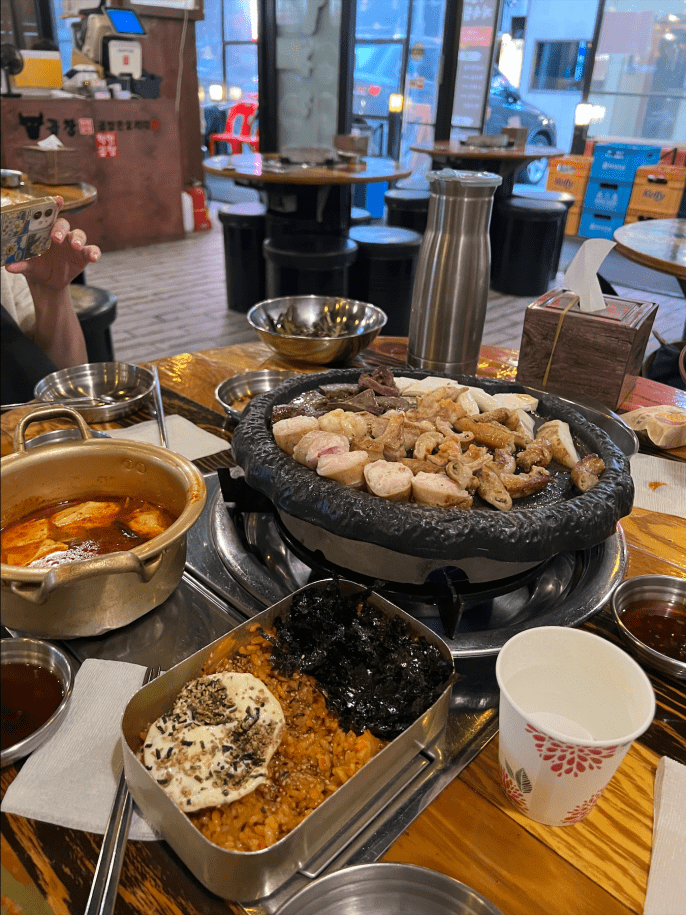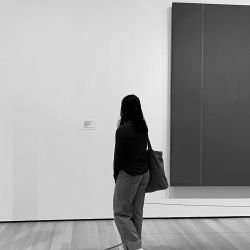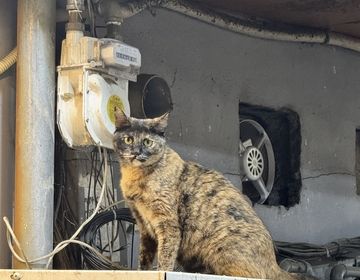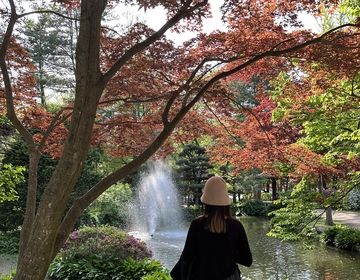Small Must-Dos to Make the Ahjummas Happy <3
Amidst trying to figure out Seoul’s transportation systems, unspoken rules, and etiquette in public areas, time has flown by without me noticing. But even within such a short time, I find myself slowly finding comfort in this new city, and calling Seoul “my home away from home.”
During my time here so far, there have definitely been some challenges with all the new thrilling experiences. Figuring out the things that come naturally for the locals here but not for foreigners, the things TikTokers don’t warn you about beforehand – the things you just have to experience first-hand to learn. So, while exploring the Seoul area, I’ve noted down some things that make the ahjummas happy (or just about any local here).
Finish all your food. And eat fast.
I realized that a lot of smaller, local restaurants are run by a group of ahjummas. There are a few of them preparing the food, a few serving orders, a few packing takeouts, etc. Their dedication to making good food and serving it to people is truly something I admire.
The first way to make ahjummas happy is to finish all your food. It’s pretty self-explanatory. By all of it, I mean not a single drop of soup, not a single grain of rice, and not a single piece of banchan/ side dishes should be left behind. These ahjummas spend a lot of time and effort cooking these meals, so finishing everything is a sign of acknowledging their hard work. I promise you, they get super content seeing each customer enjoy their food. And to be very honest, this is far from being a hard task meals here are so good too :)
Another thing to keep in mind is to eat fast. A lot of these restaurants have a very small seating capacity, so it’s crucial to keep the rotation cycle going. Most people (especially single-seaters) spend roughly 15 minutes in the restaurant. Very rarely would you see someone linger around/chit-chat in these small restaurants. The second they’re done with their meal, they leave for the next people. Ahjummas love speed as it means they can serve more customers :)
Say your thank you’s (or in Korean: 감사합니다)
After finishing your meal, saying “thank you” (감사합니다 or 잘 먹었습니다) is absolutely critical. Naturally, it’s respectful to thank someone for making your meal. But, saying thank you while walking out of the restaurant also lets the ahjummas know that they may clean up and prepare the table for the next group.
While saying thank you, I’ve also noticed that people also do a small bow. There’s no need for a full 90-degree bow – just a small one while walking out will do. Ahjummas will thank you as well for eating the meal.
In public transportation, talk very quietly. Or just don’t talk at all.
One thing I’ve definitely noticed is that ahjummas value their peace and quietness. If you take that away from them, don’t be too surprised if you get a nasty glare from them. Or sometimes even, if they’re feeling bold, they’ll walk up to you to tell you to be quiet. So, just be quiet. Or if you’re talking with a friend, make sure you’re not laughing/ talking too loudly.
Don’t sit on reserved seats.
Despite having lived in three different cities in Asia, I still find it fascinating how people respond to the handicapped/ reserved seating here in Seoul. In many of the places I’ve lived in, people still continue to sit in these reserved seatings like normal, but would give up their seat when someone needs it. Here in Korea, the seats are usually empty. Especially on the train, even when it’s super packed during rush hour, the reserved seats will still be empty.
On a related note – people here love seats. The second a seat opens up on the train or bus, people will try to get the seat. If you want to make ahjummas happy, just let them have the seat :)
Final thoughts.
These, of course, are not formal rules of any sort. They’re not written down anywhere; they’re just sort of unspoken rules I’ve noticed during my time in Seoul so far. Although they’re quite different than the unspoken rules in America, it’s been fascinating for me every time I learn something new.
Related Posts
A Weekend in Daegu
This weekend I went all the way to Daegu to see the Daegu Hip Hop Festival. So let me tell you a little bit about how it went. So first... keep reading
Sometimes, You Should Just Take A Moment
Now that we are in May, I thought I would just take a quick moment to reflect on my time here so far. I just wanted to take a moment... keep reading
Exploring Nami Island, Namsan Tower, and Everland in One Weekend
A whirlwind weekend journey through the serene beauty of Nami Island, the breathtaking heights of Namsan Tower, and the thrilling excitement of Everland in South Korea 🏝️🫧𓇼𓏲*ੈ✩‧₊˚🎐



